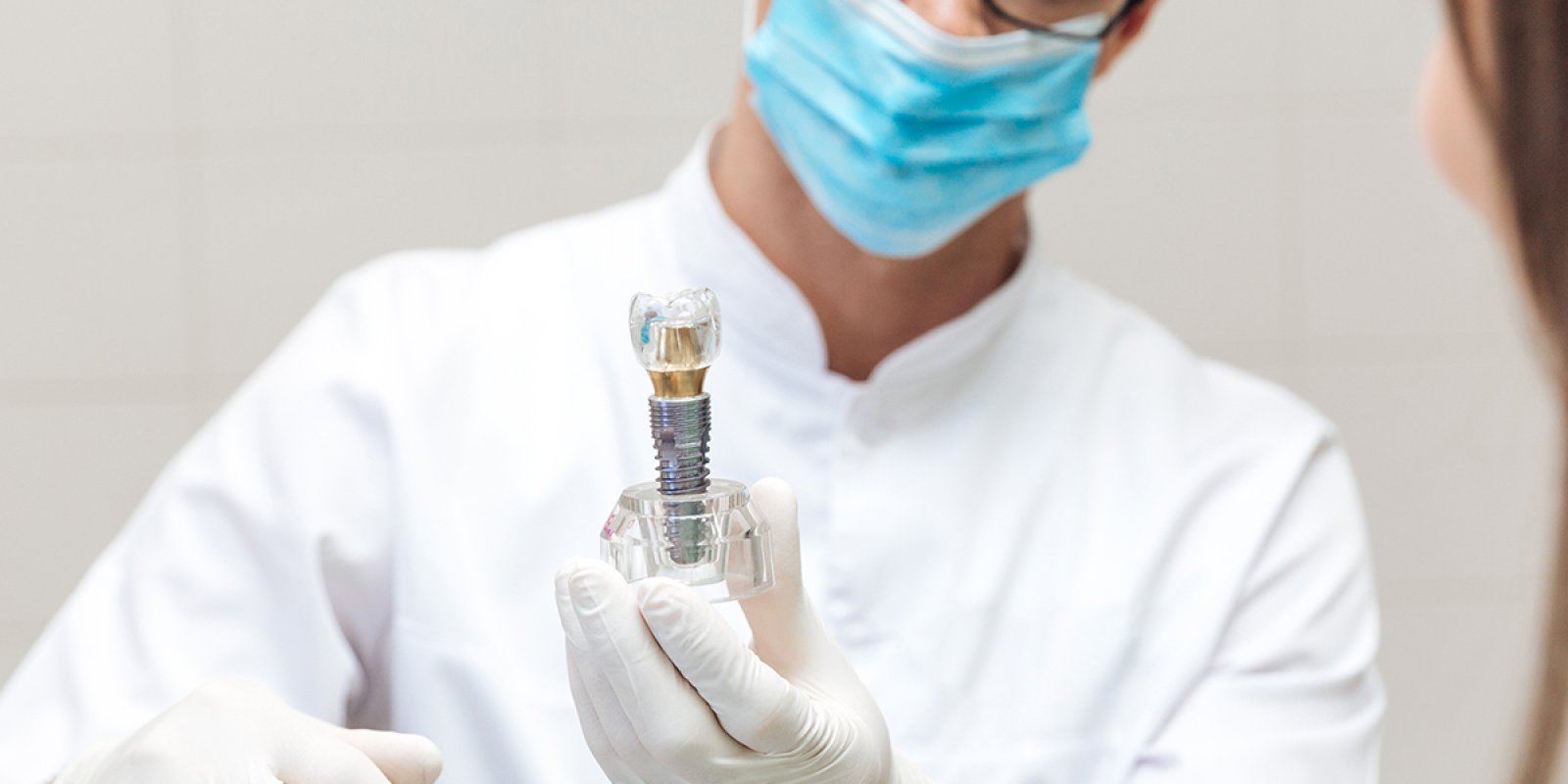DENTAID EXPERTISE
News for dentistry professionals
ANTIBACTERIAL PREVENTION IN TITANIUM DENTAL IMPLANTS
27 Jun 2019

This study will be useful for the future development of antibacterial strategies preventing incidence and progression of peri-implantitis in patients with implants.
Vilarrasa J, & cols. In vitro evaluation of a multispecies oral biofilm over antibacterial coated titanium surfaces. J Mater Sci Mater Med 2018 Nov 3; 29 (11): 164.
INTRODUCTION
Peri-implantitis is an infectious disease that affects the supporting soft and hard tissues around dental implants and its prevalence is increasing considerably. The development of antibacterial strategies, such as titanium antibacterial-coated surfaces, may be a promising strategy to prevent the onset and progression of peri-implantitis.
AIM
The aim of this study was to quantify the biofilm adhesion and bacterial cell viability over titanium disc with or without antibacterial surface treatment.
MATERIAL AND METHODS
Five bacterial strains were used to develop a multispecies oral biofilm. The selected species represent initial (Streptococcus oralis and Actinomyces viscosus), early (Veillonella parvula), secondary (Fusobacterium nucleatum) and late (Porphyromonas gingivalis) colonizers.
Bacteria were sequentially inoculated over seven different types of titanium surfaces, combining different roughness level and antibacterial coatings: silver nanoparticles and TESPSA silanization.
Biofilm formation, cellular viability and bacterial quantification over each surface were analyzed using scanning electron microscopy, confocal microscopy and real time PCR.
RESULTS
Biofilm formation over titanium surfaces with different bacterial morphologies could be observed. TESPSA was able to significantly reduce the cellular viability when compared to all the surfaces (p < 0.05).
Silver deposition on titanium surface did not show improved results in terms of biofilm adhesion and cellular viability when compared to its corresponding non-coated surface.
The total amount of bacterial biofilm did not significantly differ between groups (p > 0.05).
CONCLUSION
TESPSA was able to reduce biofilm adhesion and cellular viability. However, silver deposition on titanium surface seemed not to confer these antibacterial properties.
RELATED ARTICLES

18 Jun 2020
PERIO·AID® BIOADHESIVE GEL IMPROVES HEALING AND RESTORATIVE EFFICACY AFTER ORAL SURGERY
A clinical trial has shown the regenerative properties of PERIO·AID® Bioadhesive gel after surgical removal of two third molars. Evaluation* of the…

10 Mar 2020
Improving clinical outcomes in patients with peri-implant mucositis through mechanical control of biofilm and accompanying mouthwash
Mechanical control of biofilm by the dental clinic practitioner, as well as by the patient, together with an adjunctive chlorhexidine and…

25 Feb 2019
INFLUENCE OF SOLOBACTERIUM MOOREI ON PRODUCTION OF VOLATILE ORGANIC COMPOUNDS CAUSING HALITOSIS
DENTAID presents new research at EuroPerio9 into the effect of the microorganism Solobacterium moorei on oral biofilm and its implication in bad…
Sign up for the DENTAID Expertise newsletter
Sign up for the newsletter